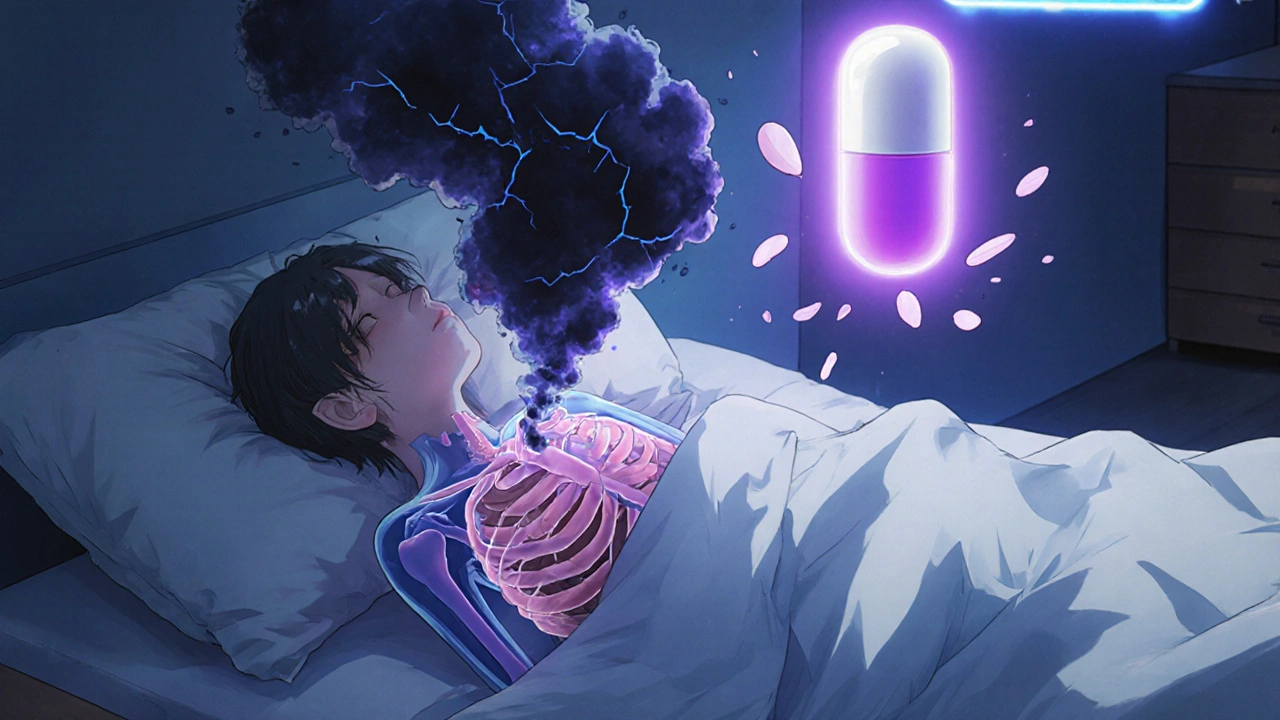Antihypertensives Explained: Beta-Blockers, ACE Inhibitors, and ARBs - Benefits, Risks, and Real-World Choices
 Nov, 24 2025
Nov, 24 2025
When your doctor says you need medication for high blood pressure, you’re probably handed a prescription for one of three types: a beta-blocker, an ACE inhibitor, or an ARB. They all lower blood pressure, but they work in completely different ways - and not all are right for everyone. Many people switch meds because of side effects, fatigue, or coughs that won’t go away. Others wonder why their neighbor takes one drug and they take another, even though they both have hypertension. The truth? It’s not just about lowering numbers. It’s about your heart, your kidneys, your energy, and your life.
How These Drugs Actually Work
Think of your blood pressure like a water hose. Too much pressure? You need to reduce the flow or open up the pipe. That’s what these drugs do - but each one targets a different part of the system.
ACE inhibitors like lisinopril or enalapril block an enzyme that makes a hormone called angiotensin II. That hormone tightens blood vessels and tells your kidneys to hold onto salt and water. By stopping it, ACE inhibitors relax your arteries, reduce fluid buildup, and lower pressure. They’ve been around since the 1980s and were the first class proven to cut heart attacks and deaths in people with heart disease.
ARBs - angiotensin receptor blockers - like losartan or valsartan, do something similar but at the end of the chain. Instead of blocking the enzyme, they block the receptor that angiotensin II binds to. So the hormone can’t do its job. The result? Similar blood pressure lowering, but without the buildup of another chemical called bradykinin - which is why ARBs cause fewer side effects.
Beta-blockers like metoprolol or carvedilol work on your heart, not your blood vessels. They slow your heart rate and reduce how hard your heart pumps. That lowers pressure, but it also drains your energy. These were once first-line for all hypertension, but now they’re mostly used when you’ve had a heart attack, have heart failure, or have a fast heartbeat. They’re not the best choice if you’re just trying to control high blood pressure with no other issues.
The Real-World Side Effects You Actually Experience
Doctors talk about efficacy and trials. Patients talk about coughing all night or feeling like a zombie.
With ACE inhibitors, the most common complaint? A dry, hacking cough. It’s not an allergy - it’s a chemical side effect. About 1 in 5 people get it. Some notice it after a week. Others don’t realize it’s the drug until they stop taking it and the cough vanishes. In one study of over 300,000 patients, the risk of cough was nearly double with ACE inhibitors compared to ARBs. And while rare, angioedema - swelling of the lips, tongue, or throat - can happen. It’s serious. You need to stop the drug and get help right away.
ARBs avoid most of that. Only about 6% of people on ARBs report cough. That’s why, in 2022, 68% of cardiologists in a Medscape survey said they now start new patients on ARBs instead of ACE inhibitors - unless there’s a specific reason not to.
Beta-blockers? Fatigue is the big one. People say they can’t get out of bed, can’t walk up stairs, or feel too tired to work. One Reddit user wrote: “Metoprolol made me so tired I couldn’t work - switched to amlodipine and symptoms resolved.” That’s not unusual. About 28% of people on beta-blockers report this. Some newer ones, like nebivolol, are better - only 14% report fatigue. But they’re not always covered by insurance.
There’s also metabolic stuff. Beta-blockers can raise triglycerides and lower good cholesterol. For someone with diabetes or metabolic syndrome, that’s a problem. One study showed they increased triglycerides by 10-15% and lowered HDL by 5-10%. Not a dealbreaker, but something to watch.
Who Gets Which Drug - And Why
It’s not random. Your doctor picks based on your health history, not just your blood pressure number.
If you’ve had a heart attack, ACE inhibitors are still the gold standard. The SAVE trial showed they cut death risk by 19% after a heart attack. Even today, 82% of cardiologists still start post-MI patients on ACE inhibitors.
If you have diabetes and protein in your urine (a sign of kidney damage), ACE inhibitors are preferred. They reduce protein leakage more than ARBs. But if you can’t tolerate the cough? ARBs are just as good for protecting your kidneys - and you’ll stick with them longer.
For heart failure with reduced pumping ability (HFrEF), things changed in 2014. The PARADIGM-HF trial showed that a new drug - sacubitril-valsartan - beat enalapril (an ACE inhibitor) at reducing death and hospitalization. Now, guidelines say if you qualify, you should be on that combo, not an ACE inhibitor alone. But it’s expensive. And not everyone can use it.
Beta-blockers? They’re not first-line for plain high blood pressure anymore. In fact, the INVEST trial showed people on atenolol had a 16% higher stroke risk than those on calcium channel blockers. But if you have heart failure, atrial fibrillation, or angina? Beta-blockers save lives. Carvedilol cuts death risk by 35% in heart failure patients. At a lower dose, it’s a game-changer.

Why Some People Switch - And When to Consider It
People don’t switch meds because they’re bored. They switch because they can’t live with the side effects.
On Drugs.com, lisinopril (an ACE inhibitor) has a 5.8/10 rating. 42% of users report cough. 8% quit because of side effects. Losartan (an ARB)? 7.1/10. Only 15% report problems. That’s a huge difference.
One patient on Reddit said: “Switched from lisinopril to valsartan after six months of debilitating cough - immediate improvement.” That’s not an outlier. In real-world data, 78% of people who stop ACE inhibitors do so because of cough - and almost all of them switch to an ARB.
And persistence matters. A CVS Health analysis of 2 million patients found that 63% of people stayed on ARBs after 12 months. Only 57% stayed on ACE inhibitors. Better tolerability means better adherence. And better adherence means fewer strokes and heart attacks.
If you’re on a beta-blocker and feel exhausted, don’t just suffer. Talk to your doctor. Maybe you need a lower dose. Or maybe you need a different beta-blocker - like nebivolol, which causes less fatigue. Or maybe you need a completely different class, like a calcium channel blocker. There’s no shame in switching. Your quality of life matters.
What You Should Know About Combining Drugs
Most people need more than one drug to control blood pressure. That’s normal.
Combining an ACE inhibitor or ARB with a diuretic (like hydrochlorothiazide) is common. Together, they can drop systolic pressure by 20-25 mmHg. That’s more than either drug alone.
But here’s a big warning: never combine an ACE inhibitor and an ARB. That used to be done - but the ONTARGET trial in 2008 showed it increased kidney failure risk by 38%. No benefit. Just more danger.
Now, there’s a new option: fixed-dose combinations. In 2023, the FDA approved a single pill with four drugs: amlodipine, valsartan, hydrochlorothiazide, and chlorthalidone. It’s for people with resistant hypertension - those who still can’t get their numbers down after trying three or more drugs. It’s powerful. But it’s not for beginners.

The Future: What’s Changing Now
Guidelines are shifting. The European Society of Cardiology now says ARBs and ACE inhibitors are equally good for hypertension. The American Heart Association still favors ACE inhibitors for certain groups, like people with kidney disease or after a heart attack.
But real-world practice is moving faster. ARBs are growing in popularity. The global market for ARBs is growing at 4.2% per year - faster than ACE inhibitors. Why? Because patients can tolerate them better. And doctors are listening.
There’s also a new study underway - the PRECISION trial - tracking 8,500 older adults over five years to see if ARBs protect the brain better than ACE inhibitors. Early data suggests ARBs may slow cognitive decline. If confirmed, that could change how we treat hypertension in seniors.
Meanwhile, beta-blockers are getting a second look. A 2022 meta-analysis of 348,000 people found they reduce stroke risk by 17% - contradicting older beliefs. But they still aren’t first-line for uncomplicated hypertension. The metabolic downsides and fatigue still outweigh the benefits for most people without heart disease.
What to Ask Your Doctor
Don’t just take the script. Ask:
- Why this drug - and not another?
- What side effects should I watch for?
- What happens if I can’t tolerate it?
- Do I need to stay on this forever?
- Is there a cheaper or better-tolerated option?
If you’re on an ACE inhibitor and have a cough, say so. Don’t wait. Switching to an ARB often fixes it overnight. If you’re on a beta-blocker and feel wiped out, ask about nebivolol or a dose change. If you have diabetes or kidney disease, make sure you’re getting the drug with the strongest evidence for protecting your organs.
There’s no one-size-fits-all. Your blood pressure isn’t just a number. It’s your body’s signal. Listen to it. And don’t be afraid to speak up.

Stephen Adeyanju
November 26, 2025 AT 05:12james thomas
November 26, 2025 AT 22:56Deborah Williams
November 28, 2025 AT 11:43Kaushik Das
November 28, 2025 AT 22:13Asia Roveda
November 29, 2025 AT 20:40Micaela Yarman
November 30, 2025 AT 22:16mohit passi
December 2, 2025 AT 01:08Aaron Whong
December 3, 2025 AT 13:54Sanjay Menon
December 5, 2025 AT 12:10Cynthia Springer
December 6, 2025 AT 11:32Brittany Medley
December 8, 2025 AT 02:10Marissa Coratti
December 8, 2025 AT 04:16Rachel Whip
December 9, 2025 AT 11:07Ezequiel adrian
December 9, 2025 AT 18:25Ali Miller
December 10, 2025 AT 15:37JAY OKE
December 11, 2025 AT 12:08